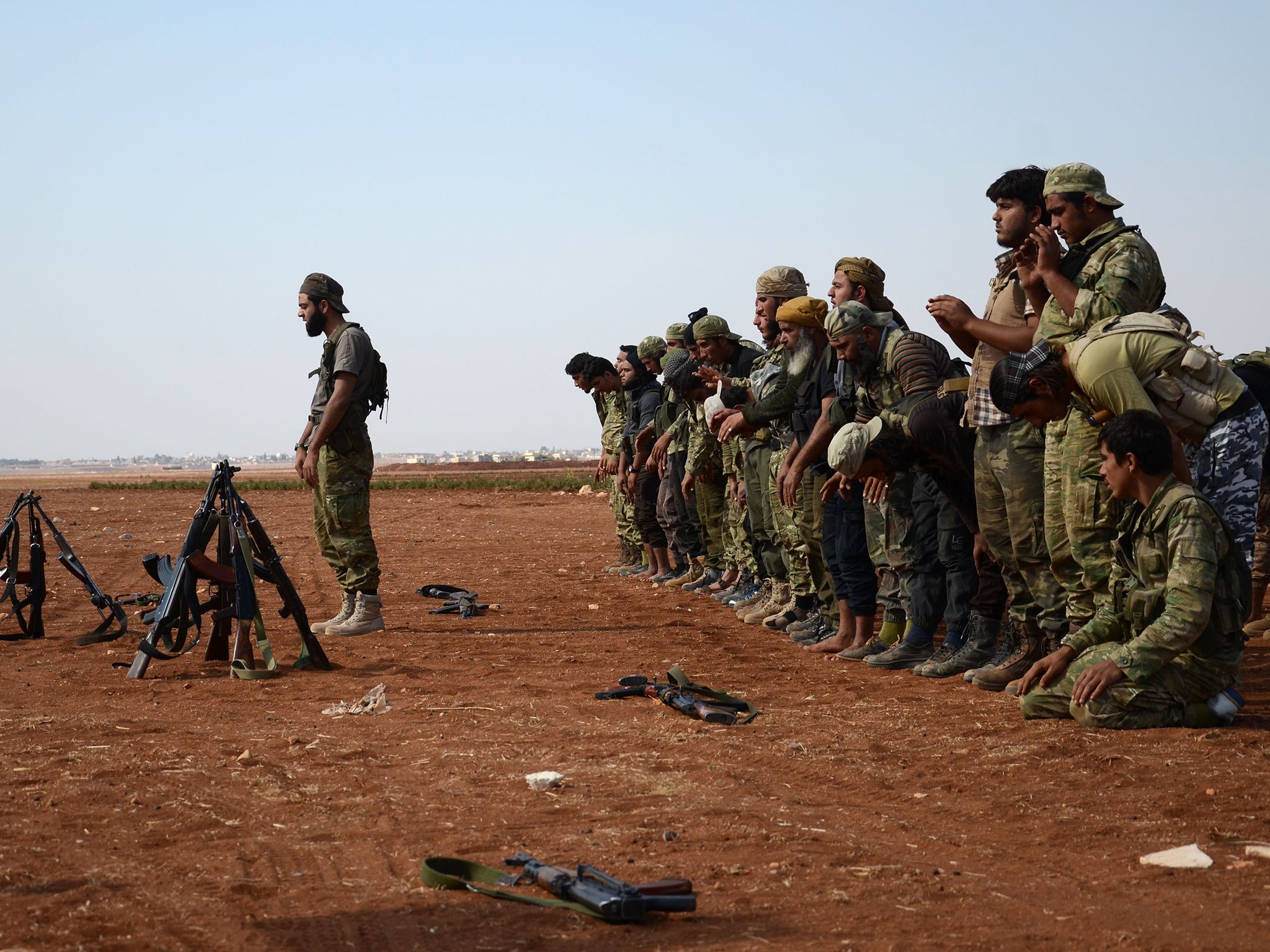British troops to train Syrian fighters as pressure on Isis grows
Move expected to attract controversy as international rivalry for influence in civil war heats up

Your support helps us to tell the story
From reproductive rights to climate change to Big Tech, The Independent is on the ground when the story is developing. Whether it's investigating the financials of Elon Musk's pro-Trump PAC or producing our latest documentary, 'The A Word', which shines a light on the American women fighting for reproductive rights, we know how important it is to parse out the facts from the messaging.
At such a critical moment in US history, we need reporters on the ground. Your donation allows us to keep sending journalists to speak to both sides of the story.
The Independent is trusted by Americans across the entire political spectrum. And unlike many other quality news outlets, we choose not to lock Americans out of our reporting and analysis with paywalls. We believe quality journalism should be available to everyone, paid for by those who can afford it.
Your support makes all the difference.British troops are to train opposition fighters in Syria in a move which is highly likely to attract controversy following the defection by ‘moderate’ rebels, trained and armed by the West, to extremist jihadist groups in the past.
The UK deployment comes at a time of intense international rivalry for influence in the country’s bloody civil war with Isis facing an impending offensive on Raqqa, the capital of its ‘caliphate’, and the Assad regime attempting to wrest back control of Aleppo with the help of its Russian and Iranian allies.
Sir Michael Fallon, the defence secretary, will announce the dispatching of the trainers at the start of a security conference in Paris on combating Isis on Tuesday. Around 20 military personnel, drawn from a number of units, will be sent initially, but the numbers are expected to be increased in the future.
The UK decision came in response to a request from the Pentagon. A similar British mission alongside the Americans, based in Jordan, ended in November last year after US trained fighters surrendered to Jabhat al-Nusra, an al-Qaeda affiliate, on crossing the Syrian border. The official reason given at the time for ending British involvement was that not enough recruits had turned up for training.
The new British team, according to defence sources, is likely to be based in al-Quweira in south-west Jordan, in camps which were built last year. They will be working, it is believed, with the New Syrian Army (NSA) which has been formed out of defectors from the regime’s armed forces.
SAS units, which have been on the ground inside Syria with NSA fighters, are said to have played a role in the selection of recruits for the new scheme. The Ministry of Defence in London stressed that “ all volunteers from the moderate opposition will be subjected to strict vetting procedures and will receive training in International Humanitarian Law. Trainees will be security and medically screened prior to the start of the training and will be assessed during and monitored after the training.”
Sir Michael stated “ Daesh [Isis] are on the back foot. The RAF is already playing a leading role in the air, hitting them hard in Iraq and Syria. Now we are stepping p our support to moderate opposition forces in Syria, through training them in the skills they need to defeat Daesh”. The training package will include combat, dealing with IEDs ( improvised explosive devices) emergency medical procedures and communication.
The NSA has been active in al-Tanaf area in southeastern Syria, near the Jordanian border. In May this year the Isis carried out a suicide attack on its base and in June it was hit by airstrikes which the group blamed on the Russians : Moscow denied being involved in the bombing.
The NSA was subsequently broke with an allied group, the Authenticity and Development Front, which receives funding from Saudi Arabia. To critics, it was just another example of the divided and dysfunctional nature of Syrian opposition fighters.
The training initiative comes against the background of jockeying for strategic advantage over the assault on Raqqa. The Americans want it to be led by its Kurdish allies, YPG and moderate Syrian groups. The Turks, engaged in conflict with the Kurds, also want to play a role while the Russians are insisting that the Assad regime must also be involved.
Join our commenting forum
Join thought-provoking conversations, follow other Independent readers and see their replies
Comments